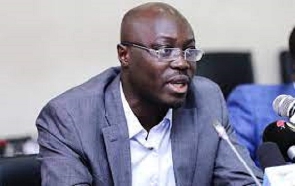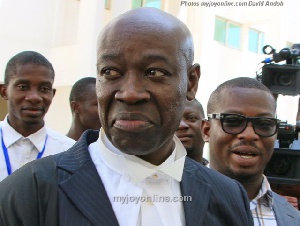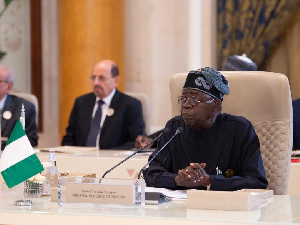A ranking member of the government finance committee, Cassiel Ato Forson, predicted at the beginning of 2022 that the year would be a year of economic misery for Ghanaians. The government debunked this prediction, which noted that the assertions were not backed by data. However, in less than six months, the country's economic indicators were pointing in the wrong direction. Read the full story originally published on May 16,2022 by GhanaWeb Ex-deputy Minister for Finance and Member of Parliament for Ajumako Enyan Esiam, Cassiel Ato Baah Forson, on January 2, 2022, predicted that the year 2022 was going to be a year of economic misery for Ghanaians. The MP, thus, urged Ghanaians to brace themselves for the impending hardship and urged the government to take the necessary steps to avert them. In response to Ato Forson's prediction, the government said his estimations were not backed by data. The Deputy Minister for Finance, John Ampontuah Kumah, particularly said that the prediction of bad economic outcomes for 2022 by Cassiel Ato Forson was purely based on speculation and propaganda. Was Cassiel Ato Forson right, or are his speculations and propaganda manifesting? GhanaWeb looks at the predictions the MP for Ajumako Enyan Esiam made and assesses whether they have happened or are likely to happen. End-of-year inflation rate of at least 30 percent Just at the beginning of this year, 2022, Ato Forson predicted that prices of goods and services would rise sharply, with Ghana recording an end-of-year inflation rate of at least 30 per cent. Now every Ghanaian can attest that the prices of goods and services are really high. When the MP made this prediction, year-on-year inflation was around 12.7 percent; now, the inflation rate for April, which did not account for the recent increase in transport fares by 20 percent, is 23.6 percent. The prices of staple foods such as maize, cassava, beans, and millet have doubled, leading to delicacies like banku and kenkey, previously sold at GH¢ 1, now selling at GH¢2 upwards. With more than six months left to the end of 2022, Ato Forson's prediction is likely to be exceeded, given the effects of the Russia-Ukraine War, which the MP did not predict, but experts say its impact on the world supply has not started yet. A dollar would cost GH¢ 7 by the end of 2022 Ajumako Enyan Esiam MP also predicted that the United States dollar (US$) would be selling at GH¢7 by the end of 2022. Well, Ghana has long crossed this bridge, with the dollar currently selling at over GH¢ 7.5. When the MP made his GH¢ 7 prediction, the dollar was selling slightly over GH¢ 6. John Kumah, now the current Deputy Finance Minister, refuted Ato Forson's prediction saying that the cedi's performance under the government of Nana Addo Dankwa Akufo-Addo has been the best in the last ten years. He added that the government had put measures in place to ensure that the cedi appreciates. Fuel prices would go up by 18 pesewas this week and will also likely go up again in the course of the year Another prediction Ato Forson made, which has come to pass, is the increase in the price of petroleum products. He indicated that fuel prices would continue to increase throughout 2022 because of the weak Ghana cedi. Since the MP made this prediction, prices of fuel products have increased more than five times. In January 2022, the cost of fuel increased from GH¢6.90 to GH¢7.42. In February, the prices increased from GH¢7.42 to GH¢7.99. In March, the prices increased two times, first to GH¢8.29 and to GH¢8.49. From GH¢8.49 it increased to over GH¢ 9, now diesel is selling at GH¢ 11.24 and petrol at GH¢9.70. Government will introduce 'multiplicity of taxes and levies' Ato Forson's prediction of the government introducing a multiplicity of taxes and levies has not yet come to pass because the only known tax the government has introduced is the Electronic Transfer Levy. President Nana Addo Dankwa Akufo-Addo has, however, said that the government would not be taking off taxes on petroleum products to help reduce the prices of these products. He said that canceling these taxes will lead to the government losing the revenue needed to implement its programmes.
Business News of Thursday, 20 October 2022
Source: www.ghanaweb.com

















